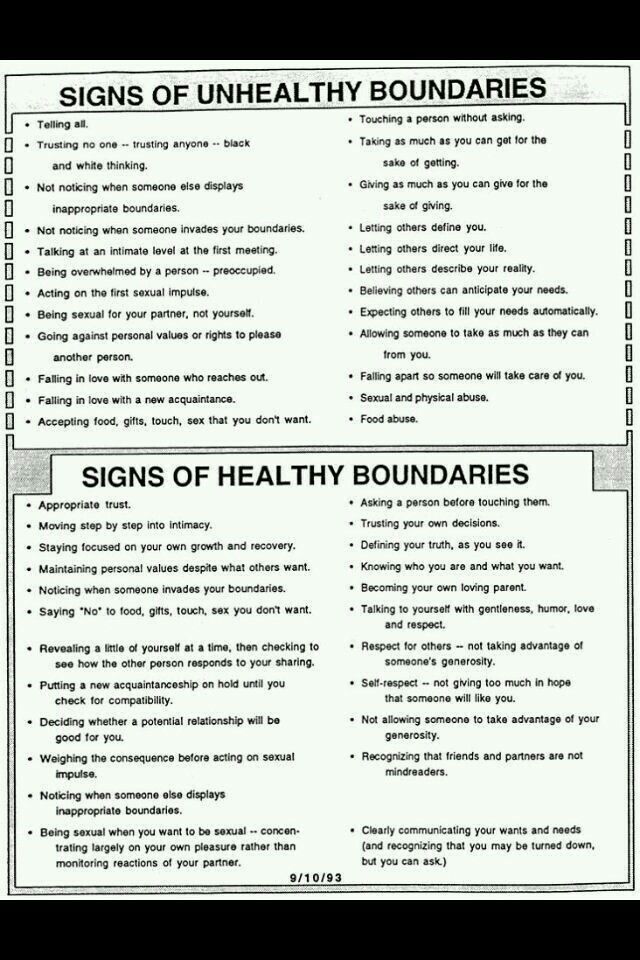How to deal with an anger problem
25 Tips to Manage Your Anger and Feel Calmer
Anger is a normal feeling and can be a positive emotion when it helps you work through issues or problems, whether that’s at work or at home.
However, anger can become problematic if it leads to aggression, outbursts, or even physical altercations.
Anger control is important for helping you avoid saying or doing something you may regret. Before anger escalates, you can use specific strategies for controlling anger.
Here are 25 ways you can control your anger:
1. Count down
Count down (or up) to 10. If you’re really mad, start at 100. In the time it takes you to count, your heart rate will slow, and your anger will likely subside.
2. Take a breather
Your breathing becomes shallower and speeds up as you grow angry. Reverse that trend (and your anger) by taking slow, deep breaths from your nose and exhaling out of your mouth for several moments.
3. Go walk around
Exercise can help calm your nerves and reduce anger. Go for a walk, ride your bike, or hit a few golf balls. Anything that gets your limbs pumping is good for your mind and body.
4. Relax your muscles
Progressive muscle relaxation calls on you to tense and slowly relax various muscle groups in your body, one at a time. As you tense and release, take slow, deliberate breaths.
5. Repeat a mantra
Find a word or phrase that helps you calm down and refocus. Repeat that word again and again to yourself when you’re upset. “Relax,” “Take it easy, and “You’ll be OK” are all good examples.
6. Stretch
Neck rolls and shoulder rolls are good examples of nonstrenuous yoga-like movements that can help you control your body and harness your emotions. No fancy equipment required.
7. Mentally escape
Slip into a quiet room, close your eyes, and practice visualizing yourself in a relaxing scene. Focus on details in the imaginary scene: What color is the water? How tall are the mountains? What do the chirping birds sound like? This practice can help you find calm amidst anger.
8. Play some tunes
Let music carry you away from your feelings. Put in earbuds or slip out to your car. Crank up your favorite music and hum, bop, or sashay your anger away.
9. Stop talking
When you’re steamed, you may be tempted to let the angry words fly, but you’re more likely to do harm than good. Pretend your lips are glued shut, just like you did as a kid. This moment without speaking will give you time to collect your thoughts.
10. Take a timeout
Give yourself a break. Sit away from others. In this quiet time, you can process events and return your emotions to neutral. You may even find this time away from others is so helpful you want to schedule it into your daily routine.
11. Take action
Harness your angry energy. Sign a petition. Write a note to an official. Do something good for someone else. Pour your energy and emotions into something that’s healthy and productive.
12. Write in your journal
What you can’t say, perhaps you can write. Jot down what you’re feeling and how you want to respond. Processing it through the written word can help you calm down and reassess the events leading up to your feelings.
Jot down what you’re feeling and how you want to respond. Processing it through the written word can help you calm down and reassess the events leading up to your feelings.
13. Find the most immediate solution
You might be angry that your child has once again left their room a mess before going to visit a friend. Shut the door. You can temporarily end your anger by putting it out of your view. Look for similar resolutions in any situations.
14. Rehearse your response
Prevent an outburst by rehearsing what you’re going to say or how you’re going to approach the problem in the future. This rehearsal period gives you time to role-play several possible solutions, too.
15. Picture a stop sign
The universal symbol to stop can help you calm down when you’re angry. It’s a quick way to help you visualize the need to halt yourself, your actions, and walk away from the moment.
16. Change your routine
If your slow commute to work makes you angry before you’ve even had coffee, find a new route. Consider options that may take longer but leave you less upset in the end.
Consider options that may take longer but leave you less upset in the end.
17. Talk to a friend
Don’t stew in the events that made you angry. Help yourself process what happened by talking with a trusted, supportive friend who can possibly provide a new perspective.
18. Laugh
Nothing upends a bad mood like a good one. Diffuse your anger by looking for ways to laugh, whether that’s playing with your kids, watching stand-up, or scrolling memes.
19. Practice gratitude
Take a moment to focus on what’s right when everything feels wrong. Realizing how many good things you have in your life can help you neutralize anger and turn around the situation.
20. Set a timer
The first thing that comes to mind when you’re angry likely isn’t the thing you should say. Give yourself a set time before you respond. This time will help you be calmer and more concise.
21. Write a letter
Write a letter or email to the person that made you angry. Then, delete it. Often, expressing your emotions in some form is all you want, even if it’s in something that will never be seen.
Then, delete it. Often, expressing your emotions in some form is all you want, even if it’s in something that will never be seen.
22. Imagine forgiving them
Finding the courage to forgive someone who has wronged you takes a lot of emotional skill. If you can’t go that far, you can at least pretend that you’re forgiving them, and you’ll feel your anger slip away.
23. Practice empathy
Try to walk in the other person’s shoes and see the situation from their perspective. When you tell the story or relive the events as they saw it, you may gain a new understanding and become less angry.
24. Express your anger
It’s OK to say how you feel, as long as you handle it in the right way. Ask a trusted friend to help you be accountable to a calm response. Outbursts solve no problems, but mature dialogue can help reduce your stress and ease your anger. It may also prevent future problems.
25. Find a creative channel
Turn your anger into a tangible production. Consider painting, gardening, or writing poetry when you’re upset. Emotions are powerful muses for creative individuals. Use yours to reduce anger.
Consider painting, gardening, or writing poetry when you’re upset. Emotions are powerful muses for creative individuals. Use yours to reduce anger.
The bottom line
Anger is a normal emotion that everyone experiences from time to time. However, if you find your anger turns to aggression or outbursts, you need to find healthy ways to deal with anger.
If these tips don’t help, consider talking with your doctor. A mental health specialist or therapist can help you work through underlying factors that may contribute to anger and other emotional issues.
Symptoms, Causes, Diagnosis, and Management
Anger Issues: Symptoms, Causes, Diagnosis, and Management- Health Conditions
- Featured
- Breast Cancer
- IBD
- Migraine
- Multiple Sclerosis (MS)
- Rheumatoid Arthritis
- Type 2 Diabetes
- Articles
- Acid Reflux
- ADHD
- Allergies
- Alzheimer's & Dementia
- Bipolar Disorder
- Cancer
- Crohn's Disease
- Chronic Pain
- Cold & Flu
- COPD
- Depression
- Fibromyalgia
- Heart Disease
- High Cholesterol
- HIV
- Hypertension
- IPF
- Osteoarthritis
- Psoriasis
- Skin Disorders and Care
- STDs
- Featured
- Discover
- Wellness Topics
- Nutrition
- Fitness
- Skin Care
- Sexual Health
- Women's Health
- Mental Well-Being
- Sleep
- Product Reviews
- Vitamins & Supplements
- Sleep
- Mental Health
- Nutrition
- At-Home Testing
- CBD
- Men’s Health
- Original Series
- Fresh Food Fast
- Diagnosis Diaries
- You’re Not Alone
- Present Tense
- Video Series
- Youth in Focus
- Healthy Harvest
- No More Silence
- Future of Health
- Wellness Topics
- Plan
- Health Challenges
- Mindful Eating
- Sugar Savvy
- Move Your Body
- Gut Health
- Mood Foods
- Align Your Spine
- Find Care
- Primary Care
- Mental Health
- OB-GYN
- Dermatologists
- Neurologists
- Cardiologists
- Orthopedists
- Lifestyle Quizzes
- Weight Management
- Am I Depressed? A Quiz for Teens
- Are You a Workaholic?
- How Well Do You Sleep?
- Tools & Resources
- Health News
- Find a Diet
- Find Healthy Snacks
- Drugs A-Z
- Health A-Z
- Health Challenges
- Connect
- Breast Cancer
- Inflammatory Bowel Disease
- Psoriatic Arthritis
- Migraine
- Multiple Sclerosis
- Psoriasis
Medically reviewed by Timothy J.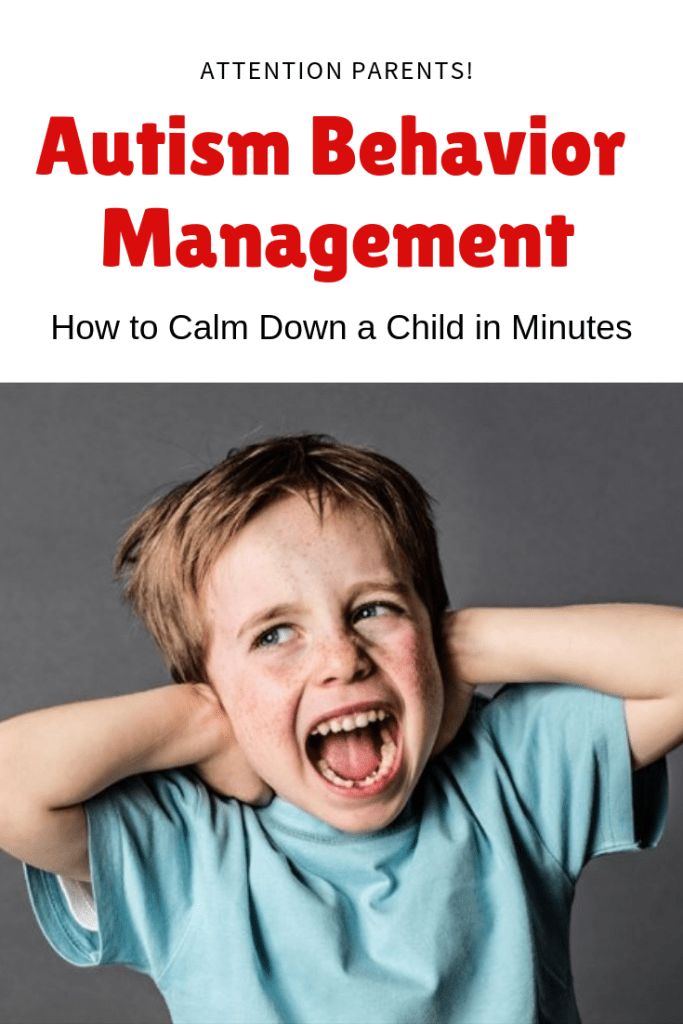 Legg, PhD, PsyD — By Adrienne Santos-Longhurst — Updated on Sep 9, 2021
Legg, PhD, PsyD — By Adrienne Santos-Longhurst — Updated on Sep 9, 2021
Some anger issues may stem from another health condition or disorder. Treating the underlying condition may help reduce uncontrollable anger.
Anger is a natural, instinctive response to threats. Some anger is necessary for our survival.
Anger becomes a problem when you have trouble controlling it, causing you to say or do things you regret.
A 2010 study found that uncontrolled anger is bad for your physical and mental health. It can also quickly escalate to verbal or physical violence, harming you and those around you.
Learn more about identifying your triggers and managing your anger below.
Many things can trigger anger, including stress, family problems, and financial issues.
For some people, anger is caused by an underlying disorder, such as alcoholism or depression. Anger itself isn’t considered a disorder, but anger is a known symptom of several mental health conditions.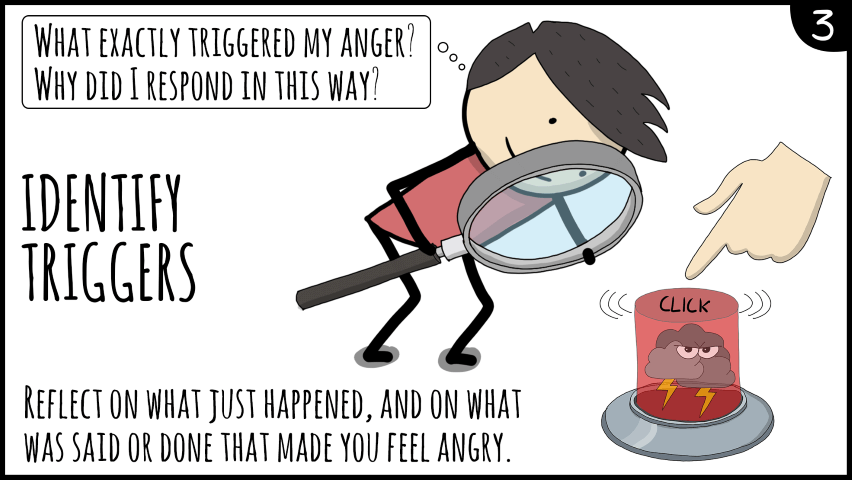
The following are some of the possible causes of anger issues.
Depression
Anger can be a symptom of depression, which is characterized as ongoing feelings of sadness and loss of interest lasting at least two weeks.
Anger can be suppressed or overtly expressed. The intensity of the anger and how it’s expressed varies from person to person.
If you have depression, you may experience other symptoms. These include:
- irritability
- loss of energy
- feelings of hopelessness
- thoughts of self-harm or suicide
Obsessive compulsive disorder
Obsessive compulsive disorder (OCD) is an anxiety disorder that’s characterized by obsessive thoughts and compulsive behavior. A person with OCD has unwanted, disturbing thoughts, urges, or images that drive them to do something repetitively.
For example, they may perform certain rituals, such as counting to a number or repeating a word or phrase, because of an irrational belief that something bad will happen if they don’t.
A 2011 study found that anger is a common symptom of OCD. It affects approximately half of people with OCD.
Anger may result from frustration with your inability to prevent obsessive thoughts and compulsive behaviors, or from having someone or something interfere with your ability to carry out a ritual.
Alcohol abuse
Research shows that drinking alcohol increases aggression. Alcohol is a contributing factor in approximately half of all violent crimes committed in the United States.
Alcohol abuse, or alcoholism, refers to consuming too much alcohol at once or regularly.
Alcohol impairs your ability to think clearly and make rational decisions. It affects your impulse control and can make it harder for you to control your emotions.
Attention deficit hyperactivity disorder
Attention deficit hyperactivity disorder (ADHD) is a neurodevelopmental disorder marked by symptoms such as inattention, hyperactivity, and or impulsivity.
Symptoms usually start in early childhood and continue throughout a person’s life. Some people are not diagnosed until adulthood, which is sometimes referred to as adult ADHD.
Some people are not diagnosed until adulthood, which is sometimes referred to as adult ADHD.
Anger and short temper can also occur in people of all ages with ADHD. Other symptoms include:
- restlessness
- problems focusing
- poor time management or planning skills
Oppositional defiant disorder
Oppositional defiant disorder (ODD) is a behavioral disorder that affects 1 to 16 percent of school-age children. Common symptoms of ODD include:
- anger
- hot temper
- irritability
Children with ODD are often easily annoyed by others. They may be defiant and argumentative.
Bipolar disorder
Bipolar disorder is a brain disorder that causes dramatic shifts in your mood.
These intense mood shifts can range from mania to depression, although not everyone with bipolar disorder will experience depression. Many people with bipolar disorder may experience periods of anger, irritability, and rage.
During a manic episode, you may:
- be easily agitated
- feel euphoric
- have racing thoughts
- engage in impulsive or reckless behavior
During a depressive episode, you may:
- feel sad, hopeless, or tearful
- lose interest in things once enjoyed
- have thoughts of suicide
Intermittent explosive disorder
A person with intermittent explosive disorder (IED) has repeated episodes of aggressive, impulsive, or violent behavior. They may overreact to situations with angry outbursts that are out of proportion to the situation.
They may overreact to situations with angry outbursts that are out of proportion to the situation.
Episodes last less than 30 minutes and come on without warning. People with the disorder may feel irritable and angry most of the time.
Some common behaviors include:
- temper tantrums
- arguments
- fighting
- physical violence
- throwing things
People with IED may feel remorseful or embarrassed after an episode.
Grief
Anger is one of the stages of grief. Grief can come from the death of a loved one, a divorce or breakup, or from losing a job. The anger may be directed at the person who died, anyone else involved in the event, or inanimate objects.
Other symptoms of grief include:
- shock
- numbness
- guilt
- sadness
- loneliness
- fear
Anger causes physical and emotional symptoms. While it’s normal to experience these symptoms on occasion, a person with anger issues tends to experience them more often and to a more severe degree.
Physical symptoms
Anger affects different parts of your body, including your heart, brain, and muscles. A 2011 study found that anger also causes an increase in testosterone levels and decrease in cortisol levels.
The physical signs and symptoms of anger include:
- increased blood pressure
- increased heart rate
- tingling sensation
- muscle tension
Emotional
There are a number of emotions that go hand in hand with anger. You may notice the following emotional symptoms before, during, or after an episode of anger:
- irritability
- frustration
- anxiety
- rage
- stress
- feeling overwhelmed
- guilt
Anger can manifest itself in a number of different ways. Not all anger is expressed in the same way. Anger and aggression can be outward, inward, or passive.
- Outward. This involves expressing your anger and aggression in an obvious way. This can include behavior such as shouting, cursing, throwing or breaking things, or being verbally or physically abusive toward others.

- Inward. This type of anger is directed at yourself. It involves negative self-talk, denying yourself things that make you happy or even basic needs, such as food. Self-harm and isolating yourself from people are other ways anger can be directed inward.
- Passive. This involves using subtle and indirect ways to express your anger. Examples of this passive aggressive behavior include giving someone the silent treatment, sulking, being sarcastic, and making snide remarks.
You may have anger issues if:
- you feel angry often
- you feel that your anger seems out of control
- your anger is impacting your relationships
- your anger is hurting others
- your anger causes you to say or do things you regret
- you’re verbally or physically abusive
If you believe your anger is out of control or if it’s negatively affecting your life or relationships, consider seeking help from a mental health professional.
A mental health professional can help determine if you have an underlying mental health condition that’s causing your anger issues and requires treatment.
Anger management can also include one or more of the following:
- relaxation techniques
- behavioral therapy
- depression, anxiety, or ADHD medications, if you’re diagnosed with any of these conditions
- anger management classes, which can be taken in person, by phone, or online
- anger management exercises at home
- support groups
Anger is a normal emotion, but if your anger seems out of control or is impacting your relationships, you may have anger issues.
A mental health professional can help you work through your anger and identify any underlying mental health conditions that may be a contributing factor. With anger management and other treatments, you can get your anger under control.
Last medically reviewed on February 4, 2019
How we reviewed this article:
Healthline has strict sourcing guidelines and relies on peer-reviewed studies, academic research institutions, and medical associations. We avoid using tertiary references. You can learn more about how we ensure our content is accurate and current by reading our editorial policy.
We avoid using tertiary references. You can learn more about how we ensure our content is accurate and current by reading our editorial policy.
- Anger and related disorders. (n.d.).
albertellis.org/anger-and-related-disorders/ - Attention-deficit/hyperactivity disorder. (2016).
nimh.nih.gov/health/topics/attention-deficit-hyperactivity-disorder-adhd/index.shtml - Bipolar disorder. (2017).
nami.org/learn-more/mental-health-conditions/bipolar-disorder - Controlling anger before it controls you. (n.d.).
apa.org/topics/anger/control.aspx - Herrero N, et al. (2010). What happens when we get angry? Hormonal, cardiovascular and asymmetrical brain responses. DOI:
10.1016/j.yhbeh.2009.12.008 - How to cope with anger. (2018).
mind.org.uk/information-support/types-of-mental-health-problems/anger/ - Mayo Clinic Staff. (2017). Complicated grief.
mayoclinic. org/diseases-conditions/complicated-grief/symptoms-causes/syc-20360374
org/diseases-conditions/complicated-grief/symptoms-causes/syc-20360374 - Mayo Clinic Staff. (2018). Anger management: 10 tips to tame your temper.
mayoclinic.org/healthy-lifestyle/adult-health/in-depth/anger-management/art-20045434 - Oppositional defiant disorder (ODD) in children. (n.d.)
hopkinsmedicine.org/healthlibrary/conditions/mental_health_disorders/oppositional_defiant_disorder_90,P02573 - Painuly NP, et al. (2011). Anger attacks in obsessive compulsive disorder. DOI:
10.4103/0972-6748.102501 - Sahu A, et al. (2014). Depression is more than just sadness: A case of excessive anger and its management in depression. DOI:
10.4103/0253-7176.127259 - Staicu ML, et al. (2010). Anger and health risk behaviors.
ncbi.nlm.nih.gov/pmc/articles/PMC3019061/ - Steffgen G. (2017). Anger management: Evaluation of a cognitive-behavioral training program for table tennis players.
 DOI:
DOI:
10.1515/hukin-2017-0006 - Treating anger management & alcoholism. (2018).
alcohol.org/co-occurring-disorder/anger-management/ - The Understood Team. ADHD and anger: What you need to know. (n.d.).
understood.org/en/learning-attention-issues/child-learning-disabilities/add-adhd/adhd-and-anger-what-you-need-to-know - What is OCD? (n.d.).
iocdf.org/about-ocd/
Our experts continually monitor the health and wellness space, and we update our articles when new information becomes available.
Current Version
Sep 9, 2021
Written By
Adrienne Santos-Longhurst
Edited By
Julia Stevenson
Copy Edited By
Copy Editors
Feb 4, 2019
Written By
Adrienne Santos-Longhurst
Edited By
John Bassham
Medically Reviewed By
Timothy J. Legg, PhD, PsyD
Share this article
Medically reviewed by Timothy J. Legg, PhD, PsyD — By Adrienne Santos-Longhurst — Updated on Sep 9, 2021
Read this next
How to Deal with Pent-Up Anger
Medically reviewed by Timothy J.
 Legg, PhD, PsyD
Legg, PhD, PsyDPent-up anger can result in blowing up or acting out when you know you can get away with it. You may feel irritable most of the day or have frequent…
READ MORE
Why Am I So Angry?
Medically reviewed by Timothy J. Legg, PhD, PsyD
Sometimes people experience intense anger that spirals out of control. In these cases, anger is not a normal emotion but a major problem.
READ MORE
Anger Management Exercises to Help You Stay Calm
Medically reviewed by Timothy J. Legg, PhD, PsyD
Anger management exercises can help you learn to manage your anger in healthy ways. From deep breathing and physical exercise to improved listening…
READ MORE
What Is Narcissistic Rage, and What’s the Best Way to Deal with It?
Medically reviewed by Jennifer Litner, PhD, LMFT, CST
Experiencing or witnessing a narcissistic rage can be a frightening experience.
 Understand what fuels the anger, how to protect yourself, and how to…
Understand what fuels the anger, how to protect yourself, and how to…READ MORE
ADHD and Anger: What’s the Connection?
Medically reviewed by Nathan Greene, PsyD
ADHD can include symptoms of anger, frustration, and irritability. We'll break it down.
READ MORE
A 2023 Hands-On Review for Moonbird: Can It Help With Anxiety?
Looking for a way to manage your anxiety or practice breathwork? Moonbird, a handheld device used for guided breathing, could help you. Read our hands-
READ MORE
How Common Is Insomnia?
Chronic insomnia isn't very common, but many people will experience insomnia symptoms in their lifetime.
READ MORE
What Is Video Therapy? Plus 13 Best Services for 2023
Video therapy has been proven to be just as effective as in-person therapy.
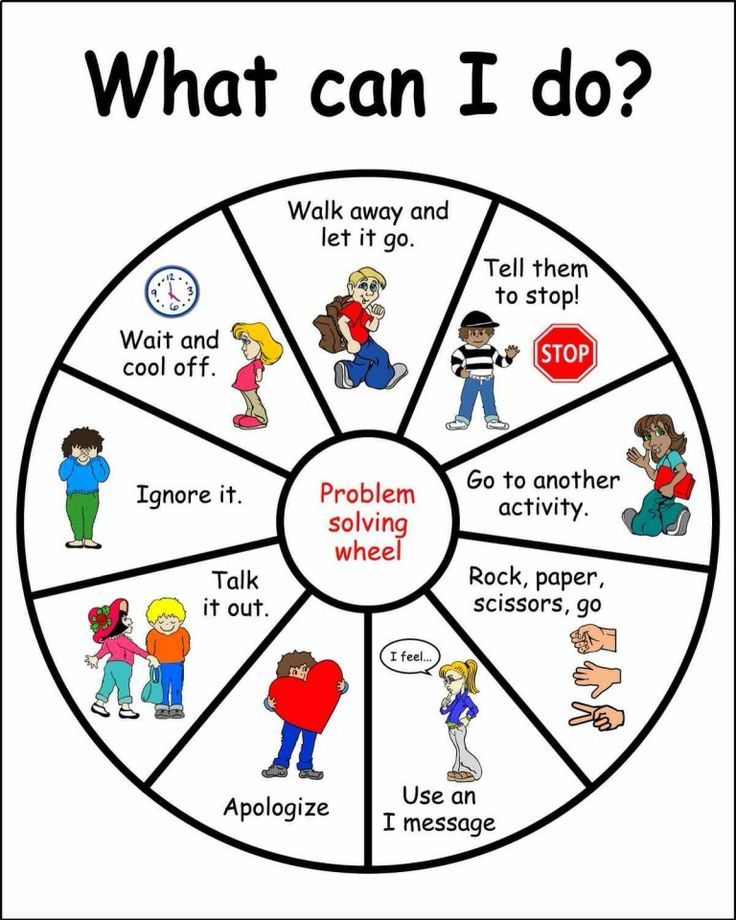 Here are the biggest benefits, as well as who are good candidates for the…
Here are the biggest benefits, as well as who are good candidates for the…READ MORE
Common Antidepressants Can Cause Emotional Blunting: What to Know
Researchers say common antidepressants can cause a loss of feeling, including both happiness and sadness, that is known as emotional blunting
READ MORE
10 useful skills, Psychology - Gestalt Club
Anger management: 10 useful skills
- Author of the article: Vladimir Zakharov
Do you get irritated when you are stuck in a traffic jam for a long time?
Do you get angry when your child refuses to listen to you?
Anger is a normal and healthy emotion, but many of us associate this feeling with destruction, as something not acceptable.
Therefore, in an attempt to support our emotional and physical security, we try to avoid those feelings - deny, do not express, suppress.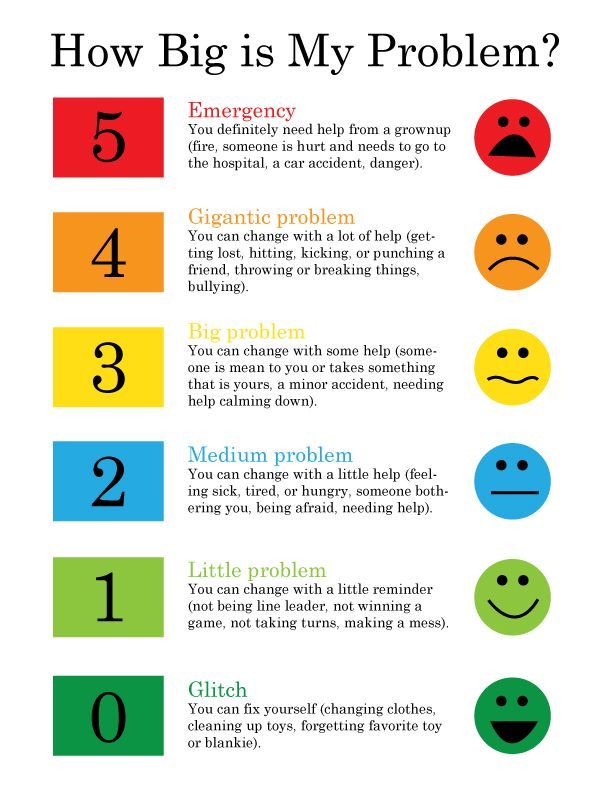
to prolonged stress. Our body is designed in such a way that it stores emotions that are not expressed until they can be released. An increased risk of anxiety heart attack and stroke, the immune system is weakened. Feels constant irritation, because it is becoming more and more difficult to restrain emotions and more difficult.
It turns out that uncontrolled anger can affect both on your health and on your relationships with others people.
Ready to learn how to control your anger? Get Started with these 10 anger management tips:
sorry. Take a few minutes to collect your thoughts before you say anything and let others who are involved in situation, do the same.
2. Once you have calmed down, express your anger
As soon as you think clearly, express your frustration assertive but not confrontational. State clearly and directly problems and needs without harming others or trying to control them.
him. When you get angry, your muscles tense up and you prepare for fight or flight. The easiest way to relieve stress that causes energy is exercise.
So the next time you feel angry, angry, go to the gym, run, put on boxers gloves and hit the pear, go for a walk or run, squat. Anything that makes your body move will help the physical tension caused by your anger will help you feel better.
4. Take a break
Rest is not just for kids. Let yourself be short breaks during the day. A few minutes of quiet time can help you feel better prepared for what to be, without being irritated or angry.
5. Identify possible solutions
Instead of focusing on what was bothering you, work on solving the problem. Your child's dirty room driving you crazy? Close the door. Your girlfriend is always late for lunch every time? Schedule lunch later, or have lunch alone several times a week. Remind yourself that anger won't fix anything and will only make things worse.
Remind yourself that anger won't fix anything and will only make things worse.
6. Effective communication
In order not to criticize or blame - which can only strengthen tension - it is important to designate your feelings from the position of "I". For example, say, "I feel angry because you don't answered my phone call last night." For some For people, “I” statements may seem trite or awkward. Changing the phrase might help, say something like this: "When you didn't answer my call last night, I was very angry.”
Another key is to name the specific behavior that bothers you, without generalizing, without judging or criticizing. That is, instead of say: “I get very angry when you joke with me in front of our friends”, you say: “I was very angry when you joked yesterday me in front of our friends."
7. Don't hold a grudge
Forgiveness is a powerful tool. If you let the anger and other negative feelings to crowd out positive feelings, you can to be consumed by one's own bitterness or feeling injustice. But if you can forgive someone who has you angry, you can learn from this situation and strengthen your relationship.
But if you can forgive someone who has you angry, you can learn from this situation and strengthen your relationship.
tension
Light can help dispel darkness. Use humor to Help yourself deal with what makes you angry. Maybe even help cope with some unrealistic expectations regarding how everything will go. However, avoid sarcasm - it can hurt feelings. and make the situation worse.
9. Practice relaxation skills
When your anger flares up, use relaxation skills. Practice deep breathing practices, close your eyes and imagine something that relaxes you or repeat something that calms you a word or phrase, such as "Calm down." You can listen to music write down your experiences on a piece of paper or in a diary, - do whatever will help you relax.
10. Feel free to ask for help
Controlling anger is sometimes a problem for everyone. Seek help with anger if your anger seems out of control, makes you do things you regret, or hurts those around you.
.
Like: 0
0 6799 0
complain
Your message
90,000 anger is normal (but you still have to work with it)Psychology / August 22,
Why are we all anger what will happen if we don’t express it, and how we can deal with it — we’ll figure it out in an article based on Natalia Presler’s lecture
Where does anger come from
Anger is a force that prompts a person to act
To fight a tiger or a mammoth, you need to get really angry. Initially, anger was given to man so that he could get angry, go hunting and feed himself, and maybe conquer the world. Anger is the force that motivates a person to act.
Now we don't see mammoths on the streets, but we communicate with other people every day. And we keep getting angry. So where does it come from?
The first reason is exhaustion. When the body lacks resources, a person rises in search of them and at the same time tries to save himself by driving away all potential competitors. Therefore, lack of sleep, pain, even poor nutrition can easily become the cause of anger. In adults, an imbalance of fat in the body increases irritability, and in children, a large amount of sugar increases excitability.
When the body lacks resources, a person rises in search of them and at the same time tries to save himself by driving away all potential competitors. Therefore, lack of sleep, pain, even poor nutrition can easily become the cause of anger. In adults, an imbalance of fat in the body increases irritability, and in children, a large amount of sugar increases excitability.
The second reason is the frustration of the need to be accepted. When a person feels that there is no place for his interests, his opinion in the family or at work, that he lacks support and love, he accumulates aggression. Most often, such situations arise with people who do not know how to express it; we will talk about them below.
The third reason is not understanding why the other person behaves the way they do. Why is your partner rude whenever you try to find out where he is now? Why does a five-year-old child not sit quietly in the theater, but throw his arms and legs at his neighbor? An adult believes that his partner is just nervous, and the child does not respect other people's boundaries.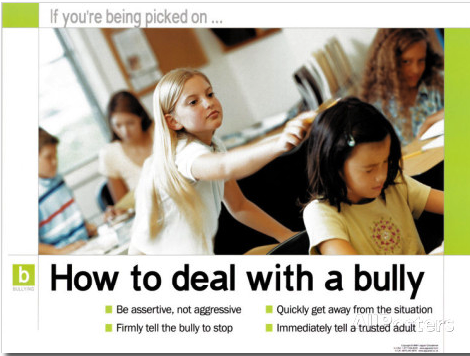 In fact, it may turn out that the partner had a controlling mother and he still perceives questions as a violation of his freedom, and an emotionally immature child is so fond of the performance that he cannot control himself.
In fact, it may turn out that the partner had a controlling mother and he still perceives questions as a violation of his freedom, and an emotionally immature child is so fond of the performance that he cannot control himself.
The fourth reason is the need for protection. When a child screams in the street and the mother cannot do anything, she becomes angry. First of all, the fact that she is losing control, and everyone sees it. Protection may be needed from pain, sadness, disappointment - in general, from all difficult emotions that threaten psychological security.
The fifth cause of anger is a threat to self-esteem. Sometimes a feeling of guilt arises because of the behavior of a loved one. “I am a bad mother” if the child screams and falls, if he is silent and plays the tablet, if he eats a lot, if he eats little... This situation makes you try to be good all the time and do everything right. It is especially difficult for perfectionists, that is, those who had the “be good” mindset in childhood in response to parental demands. The result is repressed aggression, more guilt and more anger.
The result is repressed aggression, more guilt and more anger.
Why we don't remember our childhood feelings
Psychoanalytically oriented psychologists are sure that our relationship with anger comes from childhood. All adults were once small, they experienced anger and somehow learned to cope with it, and then ... However, let's go in order.
Imagine that a baby is born. He is surrounded by love, care and is in symbiosis with his mother. The first six months is the state when he actually considers his mother as his continuation. A very close bond is necessary for the infant to survive.
Having matured a little, the child is still convinced that the mother exists only to feed, warm, entertain. But is it? Of course not. Over time, the needs of the mother, who needs to go to the toilet, wash her hair, go to the store, and sometimes just sit with a cup of tea, become more and more pronounced. Sometimes a mother is not ready to give her child love and care because she is tired, and this is completely normal.
Alas, at this moment the child is frustrated. He feels that his needs are not being met in the way he used to, and begins to get angry. At the peak of experiences, the child realizes the presence of a third and understands: the mother is actually not his, but her own and father's. The kid is going through a hard time the impossibility of being with his mother entirely. This anger often goes unexpressed because "angry is bad."
There is also the reverse situation, but it also generates anger. If the family revolves around the child, he simultaneously feels insanely important and very sick, that is, unable to take care of himself, inept, the one who needs to be monitored, controlled, helped all the time. Aggression also arises in this situation.
All this happens between the ages of 4 and 6. At the same time, fantasies and fears arise in the child: a monster is hiding under the bed, witches are flying outside the window, darkness is just waiting to pounce from behind the closet door . .. During this period, the child may begin to masturbate to cope with anxiety, or become aggressive in the nursery. garden. All his activity is aimed at coping with emotions. This is quite difficult, and as a result, children's feelings are forced out into a symbolic "basement", placed under lock and key by the psyche. And this means that in most cases the child ceases to remember them: childhood amnesia sets in.
.. During this period, the child may begin to masturbate to cope with anxiety, or become aggressive in the nursery. garden. All his activity is aimed at coping with emotions. This is quite difficult, and as a result, children's feelings are forced out into a symbolic "basement", placed under lock and key by the psyche. And this means that in most cases the child ceases to remember them: childhood amnesia sets in.
And so a person grows up, builds a family, he has his own children - and his own feelings are still repressed, forgotten. However, it is with them that both he and his partner have to deal.
"Red Buttons"
There are situations that make an adult explode. The reaction is not always adequate to the situation - the one who caused the outburst of anger thinks to himself: "What did I say? .." In fact, he, without knowing it, pressed the "red button". Each person has their own content of these buttons, but globally they are divided into two types.
1. The last straw
Let's say a mother gives to her child all the time. She plays with full dedication, eats dinner in five minutes, does not close the door to the toilet, hardly sleeps... Or, conversely, she spends 10 hours a day at work, barely has time to play with the child in the evening, and also cooks soup, cleans the floor, reads a book on how to communicate with a child ... And finally, the husband says something about an unwashed plate. Can you imagine the reaction? Explosion! The problem, of course, is not in the plate. When a person holds back emotions for too long, anything can be the last straw.
What to do about it: don't sacrifice everything for one area of life, but do exactly as much as you can; track irritation and fatigue at the very beginning; talk about it to relatives and carry out prevention (“make children a happy mother”) until the glass overflows.
2. Sore callus
Suppose a person had a father who kept track of what time the child came home throughout childhood, controlled whether the light in the bathroom was turned off, whether the closet was tidied up, whether the dishes were washed. Or the mother constantly read the diary, interfered in relationships with peers, aggressively invaded life. Or already in adulthood, the previous partner terrorized with calls. Therefore, past experience can be included in new relationships.
Or the mother constantly read the diary, interfered in relationships with peers, aggressively invaded life. Or already in adulthood, the previous partner terrorized with calls. Therefore, past experience can be included in new relationships.
“Listen, maybe you should leave the meeting earlier than the rest because you will be walking down a dark street?” - partner asks. "What are you telling me? But why should I always do everything as you said?" - A sudden explosion occurs.
The red button can be an emotionally charged experience from any period of life when a person has experienced and suppressed anger.
What to do with it: don't sacrifice everything for one area of life, but do exactly as much as you can; track irritation and fatigue at the very beginning; talk about it to relatives and carry out prevention (“make children a happy mother”) until the glass overflows.
Ladder of anger
Both an adult and a child can find themselves in a situation where sparks are already flying, a scream or even a fight begins. Sometimes it is not clear how a calm situation turned into this.
Sometimes it is not clear how a calm situation turned into this.
What's going on? Anger does not appear immediately, but goes through several stages before reaching a peak. This can be represented as a ladder. Everything starts in the zone of emotional comfort, where it is calm and nothing disturbs. This is a different situation for every person.
We recommend that you think about when this state occurs for you: while lying on the sofa with a book, walking in the park, playing with a child, at work.
-
The next step is irritation. Someone said something wrong, did something wrong, everything does not go according to plan - and the person starts to boil. In this state, you can still think and understand what caused the irritation.
Here it is important to notice the first notes of irritation, until they escalated into uncontrollable aggression.
-
The last step is an emotional outburst.
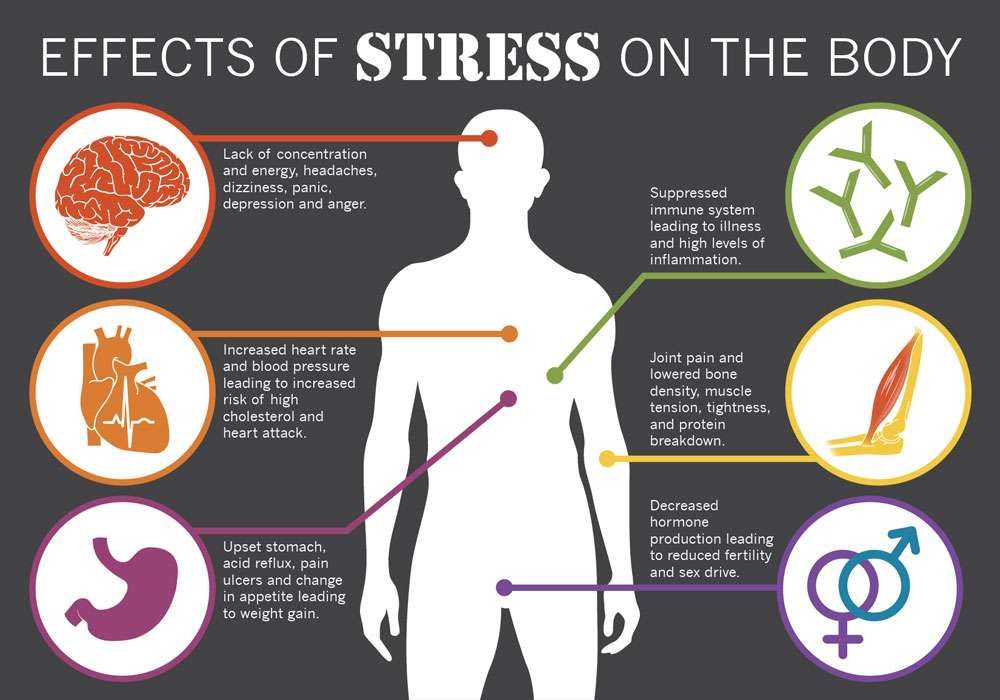 There is no control in it: a person is no longer aware of what is happening to him, cannot analyze his behavior, does not want to stop and "turns on" himself.
There is no control in it: a person is no longer aware of what is happening to him, cannot analyze his behavior, does not want to stop and "turns on" himself.
Do you remember the slogan: “It is better to prevent a fire than to put it out”? When you are already at the last step, only the automatic mechanism for getting out of the current situation will work. For example, run out of the room shouting: "That's it, I can't take it anymore", - and take a breath. But this does not solve the problem globally. Therefore, we recommend that you develop a mechanism for how to deal with irritation at the previous stage, and then you simply will not reach the peak of uncontrollable anger.
WHAT HAPPENS IF YOU DON'T EXPRESS ANGER
Have you ever met people who have difficulty expressing anger?
The problem is that this emotion still arises, but it is expressed inadequately: it either blows up a person inconsistently with the situation, or hides and makes itself felt in the form of passive aggression
Unfortunately, this is a very common story: in our culture, the open expression of strong emotions is taboo, we are taught from childhood not to be angry. People who do not know how to be angry, as a rule, are captured by their childhood conflicts. They cannot talk about their needs and adequately defend their position, they are internally irritated with themselves and others that they do not succeed.
People who do not know how to be angry, as a rule, are captured by their childhood conflicts. They cannot talk about their needs and adequately defend their position, they are internally irritated with themselves and others that they do not succeed.
Sometimes they don't even realize that they feel anger and can't do anything about it. The problem is that this emotion still arises, but it is expressed inadequately: it either blows up a person inconsistently with the situation, or hides and makes itself felt in the form of passive aggression. Let's say a person gets a job. At first he shows himself well, but over time he begins to sabotage everything. And his boss is a fool, and the tasks are not according to his standards, and his colleagues do everything wrong. As a result, a person is fired or leaves on his own, and the cycle begins anew. At the same time, he can become a domestic tyrant: find fault with the fact that the dishes are not washed, slippers are not right, the child is naughty.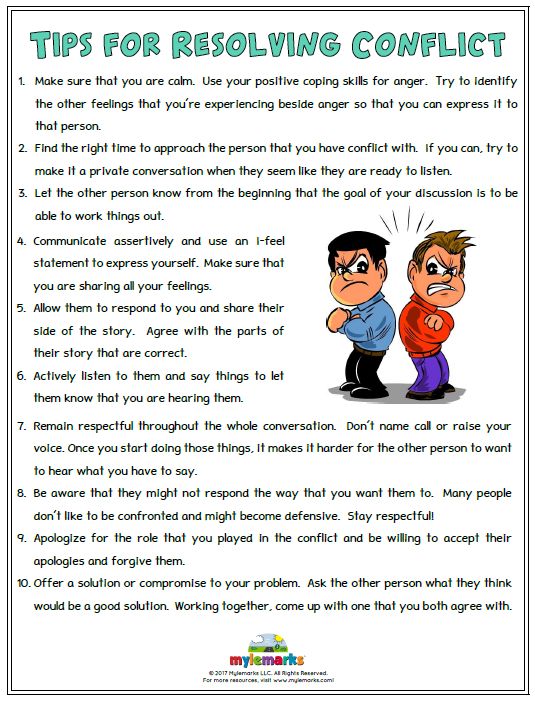 Emotional and physical rejection between spouses (unwillingness to talk, listen, make love) also speaks of passive aggression. In children, it can manifest itself through poor grades or refusal to eat, that is, neglect of what is important to parents. What's happening? A person cannot express his anger directly, so he begins to do things that will anger others and lead to a break in relations.
Emotional and physical rejection between spouses (unwillingness to talk, listen, make love) also speaks of passive aggression. In children, it can manifest itself through poor grades or refusal to eat, that is, neglect of what is important to parents. What's happening? A person cannot express his anger directly, so he begins to do things that will anger others and lead to a break in relations.
If you see a person who constantly blames others, thinks that everyone around is fools, this is a person with suppressed anger. In childhood, he could not be angry, especially at his parents, and he unconsciously "acts out" in adulthood.
It is worth remembering that anger is an emotion, it will arise in any case. And it depends only on us how it will be expressed in behavior and how it will affect our relations with others.
How to help yourself deal with anger
It is already clear that it is necessary to express anger, and it is preferable to do it constructively. Such a skill improves life, makes a person a more integral personality and allows you to build harmonious relationships with others. So how can you help yourself deal with anger?
Such a skill improves life, makes a person a more integral personality and allows you to build harmonious relationships with others. So how can you help yourself deal with anger?
1. Learn to recognize irritation in yourself before it develops into anger
sleep. Remember that the first cause of anger is the exhaustion of the body. Allow yourself to rest, arrange a “detox” from your daily routine, arrange with family members to help you with this.
Second, look at past experiences. What makes you angry and angry? If you have already found your pain points, try to notice them in different situations.
2. Allow yourself to feel
Despite children's attitudes, there are no good and bad emotions. Feeling and expressing is normal. Moreover, anger, resentment, sadness and anger are due to the characteristics of the human body. If you completely deny negative emotions and try to pretend that you have a solid positive, problems arise.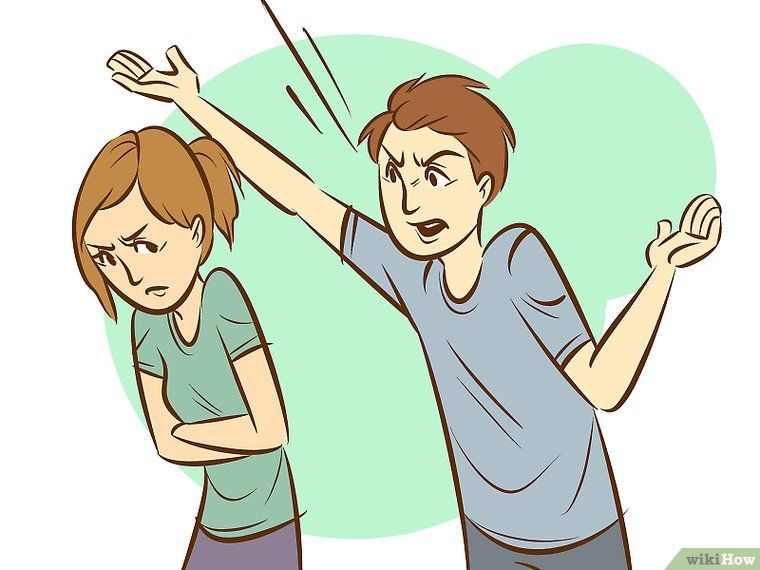 As soon as you admit to yourself what you are really experiencing and allow yourself to be with it, the feeling of guilt will go away. This means that anger will not accumulate, risking erupting at the most unfortunate moment.
As soon as you admit to yourself what you are really experiencing and allow yourself to be with it, the feeling of guilt will go away. This means that anger will not accumulate, risking erupting at the most unfortunate moment.
It is important to teach children the right to feel. They understand how parents allow themselves and others to express emotions, even if they have never been spoken to about it. Access to anger must be open: if an adult learns this first, then a child can follow him.
3. Taking responsibility
Of course, your relationship with anger was formed in childhood, in your family of origin. Then you still didn’t know how to deal with difficult emotions. But now you are an adult and you can take matters into your own hands. Admit to yourself: you are not angry and angry because someone else is bad and does everything wrong. You experience this emotion because you yourself wanted it.
It is important and necessary to investigate the causes, but this is not a reason to say to relatives: "Tolerate my unconstructive anger until I deal with this" . As an adult, you yourself build relationships with others and with yourself. By accepting this responsibility, you get the opportunity to talk about yourself, about your feelings. Not “you are not a good person, you don’t pay attention to me and the child”, but “I feel lonely if I don’t spend enough time with you.” The second option sounds different, doesn't it?
As an adult, you yourself build relationships with others and with yourself. By accepting this responsibility, you get the opportunity to talk about yourself, about your feelings. Not “you are not a good person, you don’t pay attention to me and the child”, but “I feel lonely if I don’t spend enough time with you.” The second option sounds different, doesn't it?
Do not accumulate anger in yourself. You are responsible for expressing it while maintaining the relationship.
4. Speak in words
When people first enter into relationships, they get used to each other, including in everyday life. At this point, it is important to find out and talk about your pain points that you already know about. As you get to know each other, there will be more and more discoveries, and it is important not to forget to discuss them constructively.
— How do you feel about unwashed dishes? Here I am - it's fine, I can have it in the sink for two days.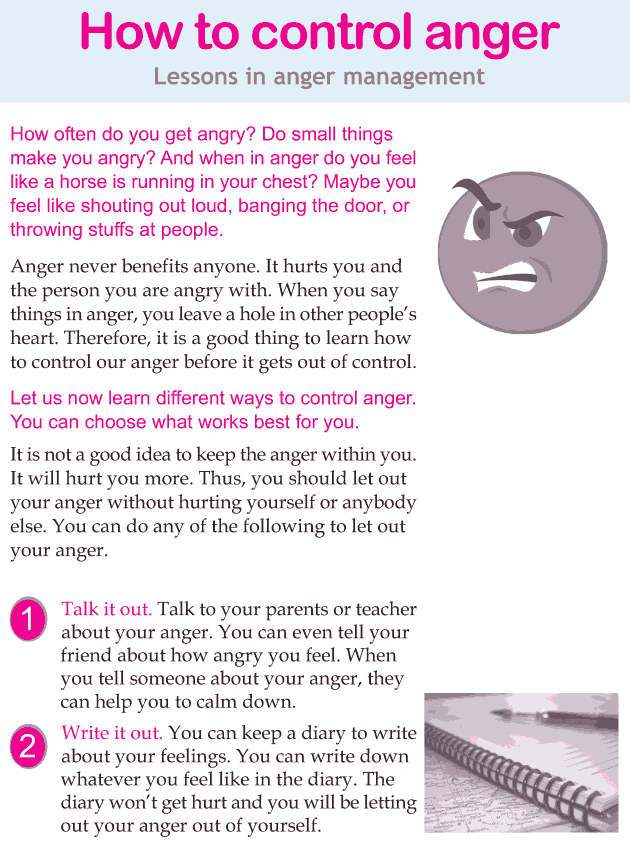
- And if I see one dirty spoon, I get very annoyed.
— I like to sleep against the wall, can I sleep there all the time?
- No, I also like to sleep against the wall, let's alternate.
- It annoys me that you throw your socks at the entrance to the house. Why are you doing like that?
- I have long had such a habit of not forgetting how many clean ones are left. Is there anything we can do to not annoy you?
- What if you put a basket with a lid in the corridor, where you put your socks, but I won't see them?
Without such dialogues, irritation will accumulate like a snowball, and eventually result in a family scandal. So we recommend taking measures in advance and agreeing with each other, but not blaming, but first of all talking about yourself.
By the way, a parent can talk about his anger to his children. True, it is important not to do this too often and take into account age. If the child is overloaded with his feelings, he may consider himself responsible for the mood and condition of the parent.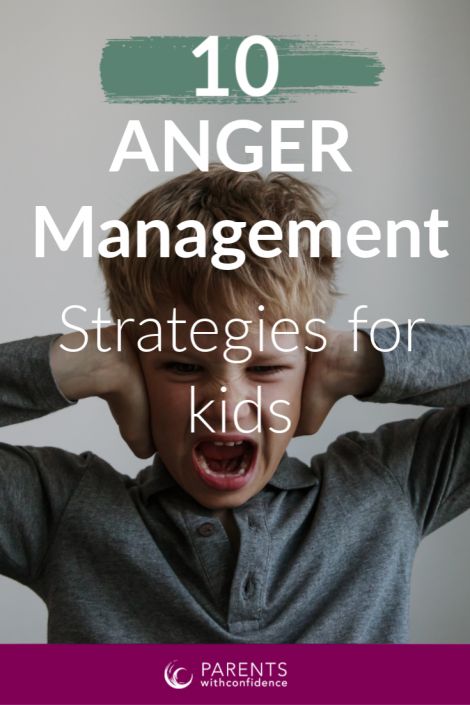
5. Emotional release
Run, squat, lock yourself in a room and forcefully paint a sheet of paper, hit a pillow, scream in the woods... Any activity connected with the body helps to express aggression. In the long term, rest more often and change activities.
6. Give yourself first aid when you are angry
When a person is in a difficult condition, it is important for him to connect his body, emotions and thoughts. This helps to pull yourself together and start behaving constructively.
► Ask yourself: "What do I feel in my body?" Answer it: trembling in the fingertips, heartbeat, etc. Concentrate on this.
► Next question: "What are my emotions?" I am angry, offended, annoyed, my self-esteem is wounded ... Track the emotion, name it.
► Last question: "What do I think?" For example, I think that the situation is terrible, that I constantly get here, this is the 15th time I explode this week.
By answering all the questions, you will connect the body, emotions and thoughts. Despite the fact that nothing seems to have changed, you, as a person, will come into balance, from which it is easier to perform other actions. For example, talk.
7. Helping a loved one who can't handle his anger
A child once asked: "Why can daddy yell at us, but I can't?" If you understand that reproaches and ignoring only aggravate the situation, it's time to help loved ones.
To a partner who came home from work and started yelling at a child, you can, for example, say:
- I see that you are tired and therefore you lose your temper. You find it hard to bear imperfection, that the dishes are not clean enough, or that the child is not well-behaved.
This should be said without irony, but sincerely, trying to understand how hard it really is for a person. For a child observing the situation, this option will also serve as a good example. And your partner will probably not be able to verbalize his anger right away, but he will feel better.
And your partner will probably not be able to verbalize his anger right away, but he will feel better.
8. Admit your mistakes
What do you do if you lose your temper, get angry with your child, and then feel guilty? Honestly ask for forgiveness:
- Forgive me. Sometimes I can't control my emotions, I don't want to do this, it's unpleasant for me, and you are not worthy of such treatment. Nobody deserves to be yelled at, I ask your forgiveness.
This is a very valuable experience for a child, unless, of course, you repeat an apology five times a day. He is good because, to firstly, the child sees: the parent is not God, he can make mistakes, which means that the child does not have to be perfect. Secondly, there is an understanding: a person can correct a mistake, apologize and improve relations. Thirdly, the child understands that the relationship with him is significant for the parent, his feelings are important, and he is ready for dialogue.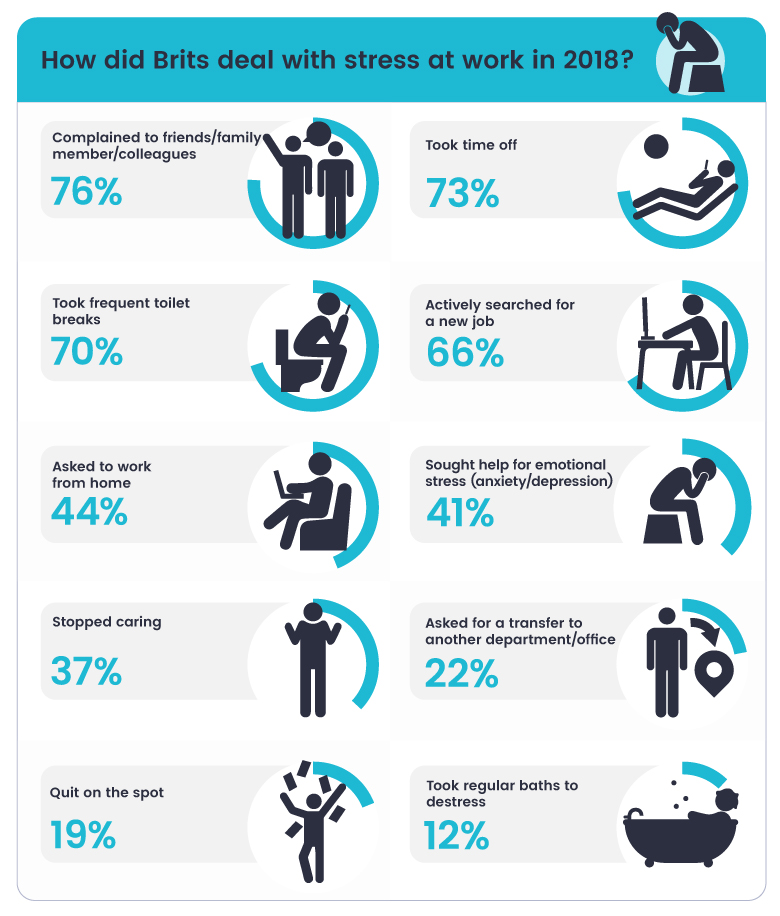
By the way, this scheme also works with a partner.
9. Go to psychotherapy
As a rule, you play emotionally difficult situations from childhood in a circle: find partners who look like parents, change one authoritarian boss for another, etc. You do this to deal with an old problem in an adult way, but use the old ways - and again it doesn't work. Psychotherapy helps to get to the bottom of frustrated emotions and develop new mechanisms that will help get out of the vicious circle.
Summarizing
-
There are no good and bad emotions. Each of them has a specific function, including anger. Healthy aggression helps protect yourself and defend your interests, while unhealthy destroys relationships.
-
Our way of dealing with anger begins in childhood, when we are not yet able to handle difficult emotions. Many adults then go around in circles, repeating scenarios of communication with parents in the family and at work, and try to replay past experiences.
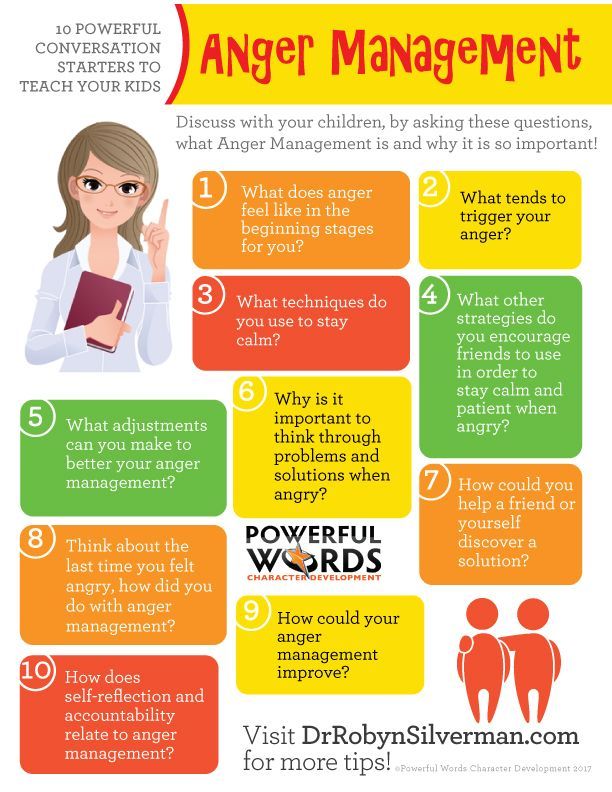 The advantage of being an adult is that we can consciously learn to express anger in a constructive way and teach it to our children.
The advantage of being an adult is that we can consciously learn to express anger in a constructive way and teach it to our children.
-
As much as we would like to be “positive” all the time, anger sometimes arises and needs to be expressed. Unexpressed anger accumulates and turns into passive aggression.
-
Each of us has our own "red buttons" that cause outbursts of anger. If you explore them and discuss with loved ones, you can avoid emotional outbursts.
-
Due to childhood amnesia, adults do not remember how angry they were when they were small, and do not realize the prohibition on anger, if any. For some, these feelings are still too complex. Psychotherapy helps to understand them.
Prepared by Maria Krasheninnikova-Khait based on the lecture “When Parents Are Angry” by practicing psychologist and psychotherapist Natalia Presler especially for the “Learning Environment”
DID YOU LIKE THIS ARTICLE?
Live-courses
from 1 month
Online courses in the most relevant areas of psychology from leading practicing psychologists.






